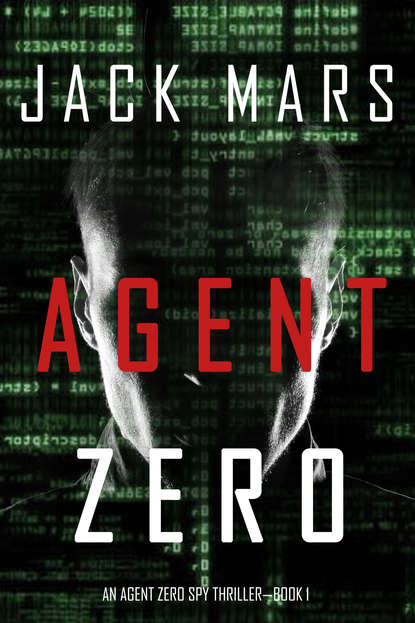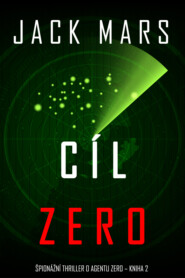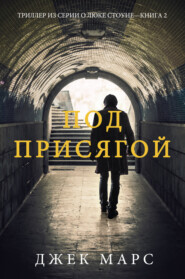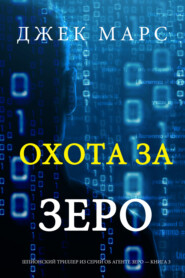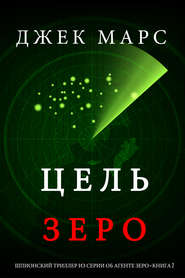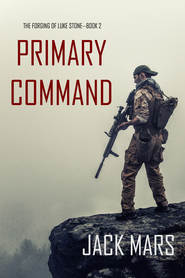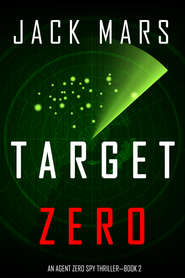По всем вопросам обращайтесь на: info@litportal.ru
(©) 2003-2025.
✖
Agent Zero
Автор
Год написания книги
2019
Настройки чтения
Размер шрифта
Высота строк
Поля
He got his answer a few seconds later. The swinging double doors were kicked open from the other side hard enough to smack against the wall behind them. The first through was the man with the AK, tracking the barrel left and right quickly in a wide sweep. Two others were right behind him, both armed with pistols.
Otets groaned in pain and gripped his leg tightly. His people heard it; they came around the corner of the bottling machine with their weapons raised to find Otets sitting on the floor, hissing through his teeth with his wounded leg prostrate.
Reid, however, was not there.
He stole quickly around the other side of the machine, staying in a crouch. He pocketed the Beretta and grabbed an empty bottle from the conveyor. Before they could even turn, he smashed the bottle over the head of the nearest worker, a Middle Eastern man, and then jammed the jagged bottleneck into the throat of the second. Warm blood ran over his hand as the man sputtered and fell.
One.
The African with the AK-47 spun, but not fast enough. Reid used his forearm to shove the barrel aside, even as a fusillade of bullets ripped through the air. He stepped forward with the Glock, pressed it beneath the man’s chin, and pulled the trigger.
Two.
One more shot finished off the first terrorist—since clearly that’s what he was dealing with, he decided—still lying unconscious on the floor.
Three.
Reid breathed hard, trying to will his heart into slowing down. He didn’t have time to be horrified by what he had just done, nor did he really want to think about it. It was as if Professor Lawson had gone into shock, and the other part had taken over completely.
Movement. To the right.
Otets crawled from behind the machine and made a grab for the AK. Reid turned quickly and kicked him in the stomach. The force of it sent the Russian rolling over, holding his side and groaning.
Reid took up the AK. How many rounds were fired? Five? Six. It was a thirty-two-round magazine. If the clip was full, he still had twenty-six rounds.
“Stay put,” he told Otets. Then, much to the Russian’s surprise, Reid left him there and went back through the double doors to the other side of the facility.
The bomb-making room was bathed in a similar red glow from an emergency light. Reid kicked open the door and immediately dropped to one knee—in case anyone had a gun trained on the entrance—and swept left and right. There was no one there, which meant there had to be a back door. He found it quickly, a steel security door between the stairs and the southern-facing wall. Likely it only opened from the inside.
The other three were out there somewhere. It was a gamble—he had no way to tell if they were waiting for him right on the other side of the door, or if they had tried to circle around to the front of the building. He needed a way to hedge his bet.
This is, after all, a bomb-making facility…
In the far corner on the opposite side, past the conveyor, he found a long wooden crate roughly the size of a coffin and filled with packing peanuts. He sifted through them until he felt something solid and hauled it out. It was a black matte plastic case, and he already knew what was inside it.
He set it on the melamine table carefully and opened it. More to his chagrin than surprise, he recognized it immediately as a suitcase bomb, set with a timer but able to be bypassed by a dead man’s switch as a fail-safe.
Sweat beaded on his forehead. Am I really going to do this?
New visions flashed across his mind—Afghani bomb-makers missing fingers and entire limbs from poorly built incendiaries. Buildings going up in smoke from one wrong move, a single misconnected wire.
What choice do you have? It’s either this, or get shot.
The dead man’s switch was a small green rectangle about the size of a pocketknife with a lever on one side. He picked it up in his left hand and held his breath.
Then he squeezed it.
Nothing happened. That was a good sign.
He made sure to hold the lever closed in his fist (releasing it would immediately detonate the bomb) and he set the suitcase’s timer for twenty minutes—he wouldn’t need that long anyway. Then he plucked up the AK in his right hand and got the hell out of there.
He winced; the rear security door squealed on its hinges as he shoved it open. He leapt out into the darkness with the AK leveled. There was no one there, not behind the building, but they had certainly heard the telltale squeak of the door.
His throat was dry and his heart was still pounding like a kettledrum, but he kept his back to the steel façade and carefully eased his way to the corner of the building. His hand was sweating, gripping the dead man’s switch in a death grip. If he released it now, he would most certainly be dead in an instant. The amount of C4 packed into that bomb would blow the walls of the building out and flatten him, if he wasn’t incinerated first.
Yesterday my biggest problem was keeping my students’ attention for ninety minutes. Today he was white-knuckling a lever to a bomb while trying to elude Russian terrorists.
Focus. He reached the corner of the building and peered around its edge, sticking to the shadows as best he could. There was a silhouette of a man, a pistol in his grip, standing sentry on the eastern façade.
Reid made sure he had a solid grip on the switch. You can do this. Then he stepped out into plain sight. The man spun quickly and began to raise his pistol.
“Hey,” Reid said. He lifted his own hand—not the one holding the gun, but the other. “Do you know what this is?”
The man paused and cocked his head slightly. Then his eyes went so wide with fear that Reid could see the whites of them by the moonlight. “Switch,” the man muttered. His gaze fluttered from the switch to the building and back again, seeming to come to the same conclusion that Reid already had—if he released that lever, they’d both be dead in a heartbeat.
The bomb-maker abandoned his plan of shooting Reid, and instead sprinted away toward the front of the building. Reid followed hastily. He heard shouts in Arabic—“Switch! He has the switch!”
He rounded the corner to the front of the facility with the AK aimed forward, the stock rested in the crook of his elbow, and his other hand holding the dead man’s switch high over his head. The sprinting bomb-maker hadn’t stopped; he kept running, up the gravel road that led away from the building and screaming himself hoarse. The other two bomb-makers were gathered near the front door, apparently ready to go in and finish Reid off. They stared in bewilderment as he came around the corner.
Reid quickly surveyed the scene. The other two men held pistols—Sig Sauer P365, thirteen-round capacity with fully extended grips—but neither pointed them. As he had presumed, Otets had made his escape through the front door and was, at the moment, halfway to the SUV, limping along while holding his hurt leg and supported under one shoulder by a short, portly man in a black cap—the driver, Reid assumed.
“Guns down,” Reid commanded, “or I’ll blow it.”
The bomb-makers carefully set their weapons in the dirt. Reid could hear shouts in the distance, more voices. There were others coming from the direction of the old estate house. Likely the Russian woman had tipped them off.
“Run,” he told them. “Go tell them what’s about to happen.”
The two men didn’t have to be told twice. They broke into a brisk run in the same direction their cohort had just gone.
Reid turned his attention to the driver, helping along the lamed Otets. “Stop!” he roared.
“Do not!” Otets screamed in Russian.
The driver hesitated. Reid dropped the AK and pulled the Glock from his jacket pocket. They had gotten a little more than halfway to the car—about twenty-five yards. Easy.
He took a few steps closer and called out, “Before today, I didn’t think I had ever fired a gun before. Turns out I’m a really good shot.”
The driver was a sensible man—or perhaps a coward, or even both. He released Otets, unceremoniously dropping his boss to the gravel.
“Keys,” Reid demanded. “Drop them.”
The driver’s hands shook as he fetched the keys to the SUV from his inner jacket pocket. He tossed them at his own feet.
Reid motioned with the barrel of his pistol. “Go.”
The driver ran. The black cap flew off his head but he paid it no mind.
“Coward!” Otets spat in Russian.
Otets groaned in pain and gripped his leg tightly. His people heard it; they came around the corner of the bottling machine with their weapons raised to find Otets sitting on the floor, hissing through his teeth with his wounded leg prostrate.
Reid, however, was not there.
He stole quickly around the other side of the machine, staying in a crouch. He pocketed the Beretta and grabbed an empty bottle from the conveyor. Before they could even turn, he smashed the bottle over the head of the nearest worker, a Middle Eastern man, and then jammed the jagged bottleneck into the throat of the second. Warm blood ran over his hand as the man sputtered and fell.
One.
The African with the AK-47 spun, but not fast enough. Reid used his forearm to shove the barrel aside, even as a fusillade of bullets ripped through the air. He stepped forward with the Glock, pressed it beneath the man’s chin, and pulled the trigger.
Two.
One more shot finished off the first terrorist—since clearly that’s what he was dealing with, he decided—still lying unconscious on the floor.
Three.
Reid breathed hard, trying to will his heart into slowing down. He didn’t have time to be horrified by what he had just done, nor did he really want to think about it. It was as if Professor Lawson had gone into shock, and the other part had taken over completely.
Movement. To the right.
Otets crawled from behind the machine and made a grab for the AK. Reid turned quickly and kicked him in the stomach. The force of it sent the Russian rolling over, holding his side and groaning.
Reid took up the AK. How many rounds were fired? Five? Six. It was a thirty-two-round magazine. If the clip was full, he still had twenty-six rounds.
“Stay put,” he told Otets. Then, much to the Russian’s surprise, Reid left him there and went back through the double doors to the other side of the facility.
The bomb-making room was bathed in a similar red glow from an emergency light. Reid kicked open the door and immediately dropped to one knee—in case anyone had a gun trained on the entrance—and swept left and right. There was no one there, which meant there had to be a back door. He found it quickly, a steel security door between the stairs and the southern-facing wall. Likely it only opened from the inside.
The other three were out there somewhere. It was a gamble—he had no way to tell if they were waiting for him right on the other side of the door, or if they had tried to circle around to the front of the building. He needed a way to hedge his bet.
This is, after all, a bomb-making facility…
In the far corner on the opposite side, past the conveyor, he found a long wooden crate roughly the size of a coffin and filled with packing peanuts. He sifted through them until he felt something solid and hauled it out. It was a black matte plastic case, and he already knew what was inside it.
He set it on the melamine table carefully and opened it. More to his chagrin than surprise, he recognized it immediately as a suitcase bomb, set with a timer but able to be bypassed by a dead man’s switch as a fail-safe.
Sweat beaded on his forehead. Am I really going to do this?
New visions flashed across his mind—Afghani bomb-makers missing fingers and entire limbs from poorly built incendiaries. Buildings going up in smoke from one wrong move, a single misconnected wire.
What choice do you have? It’s either this, or get shot.
The dead man’s switch was a small green rectangle about the size of a pocketknife with a lever on one side. He picked it up in his left hand and held his breath.
Then he squeezed it.
Nothing happened. That was a good sign.
He made sure to hold the lever closed in his fist (releasing it would immediately detonate the bomb) and he set the suitcase’s timer for twenty minutes—he wouldn’t need that long anyway. Then he plucked up the AK in his right hand and got the hell out of there.
He winced; the rear security door squealed on its hinges as he shoved it open. He leapt out into the darkness with the AK leveled. There was no one there, not behind the building, but they had certainly heard the telltale squeak of the door.
His throat was dry and his heart was still pounding like a kettledrum, but he kept his back to the steel façade and carefully eased his way to the corner of the building. His hand was sweating, gripping the dead man’s switch in a death grip. If he released it now, he would most certainly be dead in an instant. The amount of C4 packed into that bomb would blow the walls of the building out and flatten him, if he wasn’t incinerated first.
Yesterday my biggest problem was keeping my students’ attention for ninety minutes. Today he was white-knuckling a lever to a bomb while trying to elude Russian terrorists.
Focus. He reached the corner of the building and peered around its edge, sticking to the shadows as best he could. There was a silhouette of a man, a pistol in his grip, standing sentry on the eastern façade.
Reid made sure he had a solid grip on the switch. You can do this. Then he stepped out into plain sight. The man spun quickly and began to raise his pistol.
“Hey,” Reid said. He lifted his own hand—not the one holding the gun, but the other. “Do you know what this is?”
The man paused and cocked his head slightly. Then his eyes went so wide with fear that Reid could see the whites of them by the moonlight. “Switch,” the man muttered. His gaze fluttered from the switch to the building and back again, seeming to come to the same conclusion that Reid already had—if he released that lever, they’d both be dead in a heartbeat.
The bomb-maker abandoned his plan of shooting Reid, and instead sprinted away toward the front of the building. Reid followed hastily. He heard shouts in Arabic—“Switch! He has the switch!”
He rounded the corner to the front of the facility with the AK aimed forward, the stock rested in the crook of his elbow, and his other hand holding the dead man’s switch high over his head. The sprinting bomb-maker hadn’t stopped; he kept running, up the gravel road that led away from the building and screaming himself hoarse. The other two bomb-makers were gathered near the front door, apparently ready to go in and finish Reid off. They stared in bewilderment as he came around the corner.
Reid quickly surveyed the scene. The other two men held pistols—Sig Sauer P365, thirteen-round capacity with fully extended grips—but neither pointed them. As he had presumed, Otets had made his escape through the front door and was, at the moment, halfway to the SUV, limping along while holding his hurt leg and supported under one shoulder by a short, portly man in a black cap—the driver, Reid assumed.
“Guns down,” Reid commanded, “or I’ll blow it.”
The bomb-makers carefully set their weapons in the dirt. Reid could hear shouts in the distance, more voices. There were others coming from the direction of the old estate house. Likely the Russian woman had tipped them off.
“Run,” he told them. “Go tell them what’s about to happen.”
The two men didn’t have to be told twice. They broke into a brisk run in the same direction their cohort had just gone.
Reid turned his attention to the driver, helping along the lamed Otets. “Stop!” he roared.
“Do not!” Otets screamed in Russian.
The driver hesitated. Reid dropped the AK and pulled the Glock from his jacket pocket. They had gotten a little more than halfway to the car—about twenty-five yards. Easy.
He took a few steps closer and called out, “Before today, I didn’t think I had ever fired a gun before. Turns out I’m a really good shot.”
The driver was a sensible man—or perhaps a coward, or even both. He released Otets, unceremoniously dropping his boss to the gravel.
“Keys,” Reid demanded. “Drop them.”
The driver’s hands shook as he fetched the keys to the SUV from his inner jacket pocket. He tossed them at his own feet.
Reid motioned with the barrel of his pistol. “Go.”
The driver ran. The black cap flew off his head but he paid it no mind.
“Coward!” Otets spat in Russian.





